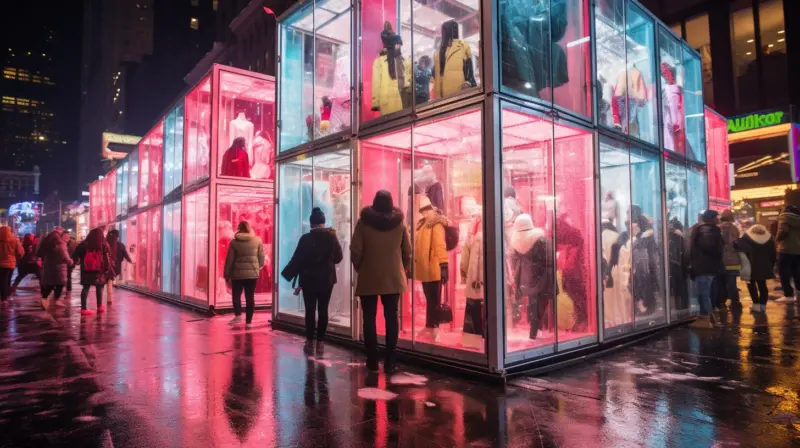Lower Price Points May Not Be Sustainable for Shein and Forever 21’s Partnership
Over the summer, fast fashion retail giants, Shein and Forever 21, announced a collaborative effort in a move to widen their customer bases. Shein will see its products sold out of the retail company’s hundreds of locations, and in turn Forever 21 gets hold of the online retail giant’s massive global reach and supply chain. The significant partnership between the two companies is buzzing in the retail industry, particularly as it pertains to the demands of consumers and the companies’ promises of staying ahead of the fashion curve. Shein and Forever 21’s partnership comes at time where the demand for fast fashion is high.
Fast fashion has long been criticized for its negative impact on the environment and critiques are not letting up anytime soon. So, while this joint force will appeal to customers with more choices, herein comes the question of whether this competitive advantage can be sustained and how will this impact the supply chain?
Dr. Ying Huang is a Professor of Marketing and Acting Chair of MEI at the University of Massachusetts Lowell, who emphasizes that sustainability is at the heart of the matter for fast fashion retailers. The lure of fast fashion is a product that is cheap and fast, and requires consumers to repeatedly buy and discard; all while retailers continuously produce more to attract. In juxtaposing it to the fair trade coffee industry, Dr. Huang questioned the partnership’s sustainability with low pricing.
Dr. Huang’s Thoughts on Shein and Forever 21’s Partnership
“A sustainable competitive advantage, okay? So, competitive advantage has to be sustainable to attract the customers and to develop that customer loyalty. So, for Shein and Forever 21, certainly they will have competitive advantage because they are the joint force, but also they need to make their business model more sustainable to be able to compete with others in the industry. In my view, for any fast fashion retailer, any fast fashion brands, sustainability is a central issue because, by definition, fast fashion means fashion comes in fast, at a cheaper price, and then also the trend will go fast. So, consumers, they buy more, and then they down it, and they buy more. So, yeah, for any fast fashion retailer, this is an issue. This strategic partnership with Forever 21, of course, for Shein it’s in terms of physical presence, a huge advantage because Forever 21 has more than 500, I think 560 stores, mostly in the U.S., but also worldwide. For Forever 21, of course, the supply chain, the competency of Shein, in supply chain, particularly with this low, extremely low price. If we look at the Forever 21 and the Shein, actually, we see the price difference.”
“So, for Shein, actually, it’s pricing lower. You can see like a t-shirt or even a sweater priced only $1, $2. Forever 21 is actually a little bit more expensive, $9, $10. So, with this supply chain, the Shein supply chain, actually, I think Forever 21 can benefit in terms of their cost structure, in terms of the supply sources, and potentially even cut price more. So, again, with this huge partnership, you know, again, the U.S. consumers and, of course, shoppers worldwide, they have more choices. Now, they have Shein’s products, also Forever 21’s products. So, I do say, you know, in terms of sustainability, yes, it does not make it better. So, that is why Shein and Forever 21 also need to look this further in terms of how to address this concern. I also, on the other hand, because of the physical presence, I doubt Shein can maintain that low price points, okay, before they don’t have those costs, right? Now, they do have those costs. So, yeah, I mean, again, increased prices, I don’t think it’s necessarily a bad thing.”
“If for any retailer, if you rely only on low price points, I don’t think it’s sustainable because shoppers, consumers, they can easily switch to another lower price competitors, right? So, if you just rely on price points, it’s not a consumer loyalty. I don’t think it’s a loyalty. It’s just because it’s cheaper price, right? And shoppers can be attracted to even cheaper price, okay? If all the players, you know, play this twice more, nobody’s going to win, right? So, previously in the coffee industry, we hear this fair trade coffee, right? So, you have to face out, you have to pay the vendors, the suppliers enough money, you have to pay your employee enough wage. So, everybody will be profiting from being part of this global supply chain, right? You cannot rely on just squeeze your spenders as, you know, out of the profit. So, I don’t think it’s sustainable.”
Article written by Alexandra Simon.
Recent Posts

In the retail fashion industry, strategic partnerships are key, especially in the fast fashion sector. A recent alliance between Shein, an emerging e-fashion giant, and Forever 21, a well-established brand, exemplifies this trend. This strategic partnership represents a significant shift in the global fashion industry. Shein, which began as a modest Chinese apparel merchant,…




